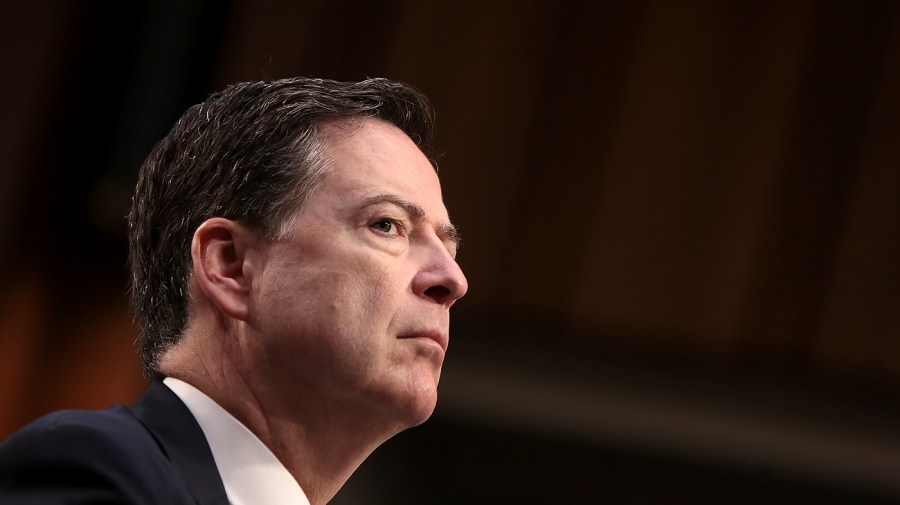Comey urges judge to toss prosecution he says stems from Trump’s ‘personal spite’

Former FBI Director James Comey urged a federal judge Monday to dismiss his criminal charges without a trial, asserting he is being unconstitutionally prosecuted because of President Trump’s personal animus.
In a 51-page motion filed Monday, Comey said the Constitution entitles individuals to speak out against the government and bars the government from retaliating.
“But that is exactly what happened here,” lawyer Jessica Carmichael wrote. “President Trump ordered the Department of Justice (DOJ) to prosecute Mr. Comey because of personal spite and because Mr. Comey has frequently criticized the President for his conduct in office.”
Comey earlier this month pleaded not guilty to false statements and obstruction charges stemming from 2020 testimony he gave to Sen. Ted Cruz (R-Texas) concerning leaks at the FBI. A trial is set for Jan. 5.
Comey is one of multiple Trump foes to recently be indicted by his Justice Department. New York Attorney General Letitia James (D) faces accusations of bank fraud, and former national security adviser John Bolton was charged last week with mishandling classified material. They all deny wrongdoing.
Monday’s motions were expected. From the onset, Comey signaled he would challenge the indictment as a vindictive prosecution and contest that Lindsey Halligan, Trump’s handpicked interim U.S. attorney who presented the case to the grand jury, is lawfully in her post. Halligan took over the role after her predecessor was pushed out after expressing reservations about the Comey case.
He must clear a high bar, but his lawyers contend Trump’s direct calls for Comey to be charged provide objective evidence the prosecution is selective and vindictive.
“Dismissal of federal criminal charges under these doctrines has been rare,” Comey’s lawyers acknowledged.
“That is because for decades the DOJ has maintained the highest standard of ethics, following only the facts and the law to determine whether to bring criminal charges. This case marks a sharp departure from that tradition,” they continued.
Trump last month made a public call to Attorney General Pam Bondi calling for charges against Comey, along with James and others.
“There is a GREAT CASE….We can’t delay any longer,” Trump wrote last month.
Comey also filed a motion challenging the appointment of Halligan, who took over the U.S. attorney post after Erik Siebert, the previous top prosecutor, resigned amid pressure to indict the former FBI director just days before the statute of limitations was set to expire.
Comey’s lawyers said Halligan’s signature on the indictment, coming from a former White House aide with no prosecuting experience before taking over the U.S. attorney’s office for the Eastern District of Virginia, makes it a “nullity” and the charges must be dismissed.
“The United States cannot charge, maintain, and prosecute a case through an official who has no entitlement to exercise governmental authority,” they wrote in the 34-page motion.
U.S. District Judge Michael Nachmanoff, an appointee of former President Biden, said at a hearing earlier this month that the challenge to Halligan’s appointment will be heard by an out-of-district judge appointed by the appellate court that oversees the district. That judge, when selected, will set their own schedule.
The accusations of a vindictive prosecution will be heard in Nachmanoff’s Alexandria, Va., courtroom on Nov. 19.
The Justice Department declined to comment. The Hill requested comment from the U.S. attorney’s office for the Eastern District of Virginia.
In claiming he is facing a selective and vindictive prosecution, Comey is making the same motion Trump used in challenging the two federal cases brought against him.
To have the charges dismissed, Comey would in part have to demonstrate that others similarly situated would not have faced charges.
While such challenges face a high bar, others facing charges under the Trump administration have scored initial success with the move.
Kilmar Abrego Garcia, who was mistakenly deported despite legal protections from removing him to his native El Salvador, made the same motion, convincing a judge to allow further discovery on the matter.